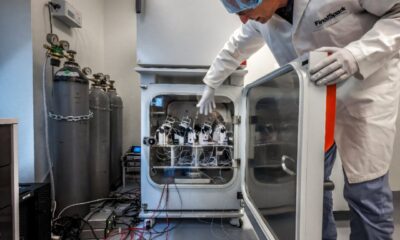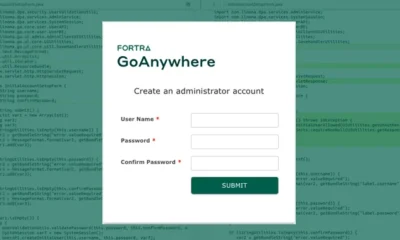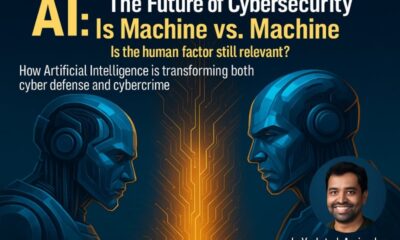Tech News
Balancing AI and Human Expertise in Threat Detection: Striking the Right Strategy

The Impact of AI Tools on Critical Thinking in Cybersecurity
As AI tools become more prevalent in various industries, concerns are growing about the potential negative impact on human critical thinking skills. This is particularly relevant in cybersecurity, where professionals need to make quick decisions under pressure. The question is not just about whether AI will help or harm, but rather how its use will either enhance or diminish analytical thinking capabilities.
Understanding the Fear in Cybersecurity Circles
AI tools offer rapid insights and automate decision-making processes, which are invaluable in dynamic cybersecurity environments. However, there is a growing concern that heavy reliance on AI may lead to a decline in independent thinking among users. Professionals may start defaulting to machine-generated suggestions instead of using their own judgment, resulting in alert fatigue and complacency. The challenge for cybersecurity teams is to leverage AI without sidelining human analysis.
Lessons from History: The “Google Effect”
In the early 2000s, there were fears that search engines like Google would diminish people’s ability to think and retain information, leading to the concept of the “Google effect.” However, the reality was different. Search engines did not stop people from thinking; they simply changed the way people processed information. Similarly, AI has the potential to reshape how critical thinking is applied, rather than replacing it entirely.
The Risks of Misusing AI in Critical Thinking
While AI has clear advantages, there are risks associated with its misuse. Blindly trusting AI-generated recommendations can result in missed threats or incorrect actions. This lack of curiosity to validate findings can weaken analysis and limit learning opportunities. In cybersecurity, where rapid and accurate decision-making is crucial, human validation and skepticism are essential.
Enhancing Critical Thinking with AI in Cybersecurity
AI can actually enhance critical thinking skills when used to support human expertise, rather than replace it. In cybersecurity, AI can automate repetitive tasks, allowing teams to focus on complex cases that require deeper analysis. By asking open-ended questions and pairing AI responses with human judgment, analysts can develop sharper thinking skills and uncover blind spots.
Practical Strategies for Using AI in Critical Thinking
- Ask open-ended questions: Encourage deeper thinking and uncover new perspectives.
- Validate AI outputs manually: Cross-check results with other sources for accuracy.
- Use AI for scenario testing: Run simulations to explore different scenarios.
- Create workflows with human checkpoints: Let AI flag patterns, but allow humans to make final decisions.
- Debrief and review AI-assisted decisions: Assess outcomes to strengthen team learning.
Training for Critical Thinking in an AI-Aided Environment
AI literacy is becoming essential for cybersecurity teams as automation becomes more prevalent. By incorporating AI education into training programs, professionals can enhance their critical thinking skills and work effectively with intelligent tools. This awareness helps teams make better judgments and responses, ultimately saving costs for organizations.
AI as a Tool for Enhancing Critical Thinking
AI is not the enemy of critical thinking; it is a tool that can enhance human cognitive abilities. Just as Google Search transformed research methods, AI can revolutionize problem-solving approaches. In cybersecurity, professionals should view AI as a tool to augment their thinking processes, rather than replace them entirely.
Zac Amos is the features editor at ReHack.
-

 Facebook4 days ago
Facebook4 days agoWarning: Facebook Creators Face Monetization Loss for Stealing and Reposting Videos
-

 Facebook4 days ago
Facebook4 days agoInstaDub: Meta’s AI Translation Tool for Instagram Videos
-

 Facebook4 days ago
Facebook4 days agoFacebook Compliance: ICE-tracking Page Removed After US Government Intervention
-

 Facebook5 days ago
Facebook5 days agoBreaking Updates: Meta Connect 2025 Unveils Latest Developments
-

 Cars4 days ago
Cars4 days agoRevving into the Future: Ferrari’s Plan to Unleash 20 New Models, Including Electric Vehicles, by 2030
-

 Video Games5 days ago
Video Games5 days agoGoku Takes on the Dragon Ball FighterZ Arena
-

 Video Games6 days ago
Video Games6 days agoTekken 8: Rise of the Shadows
-

 Amazon6 days ago
Amazon6 days agoNeil Young Takes a Stand: Pulling Music from Amazon in Protest of Jeff Bezos’ Support for Trump





























